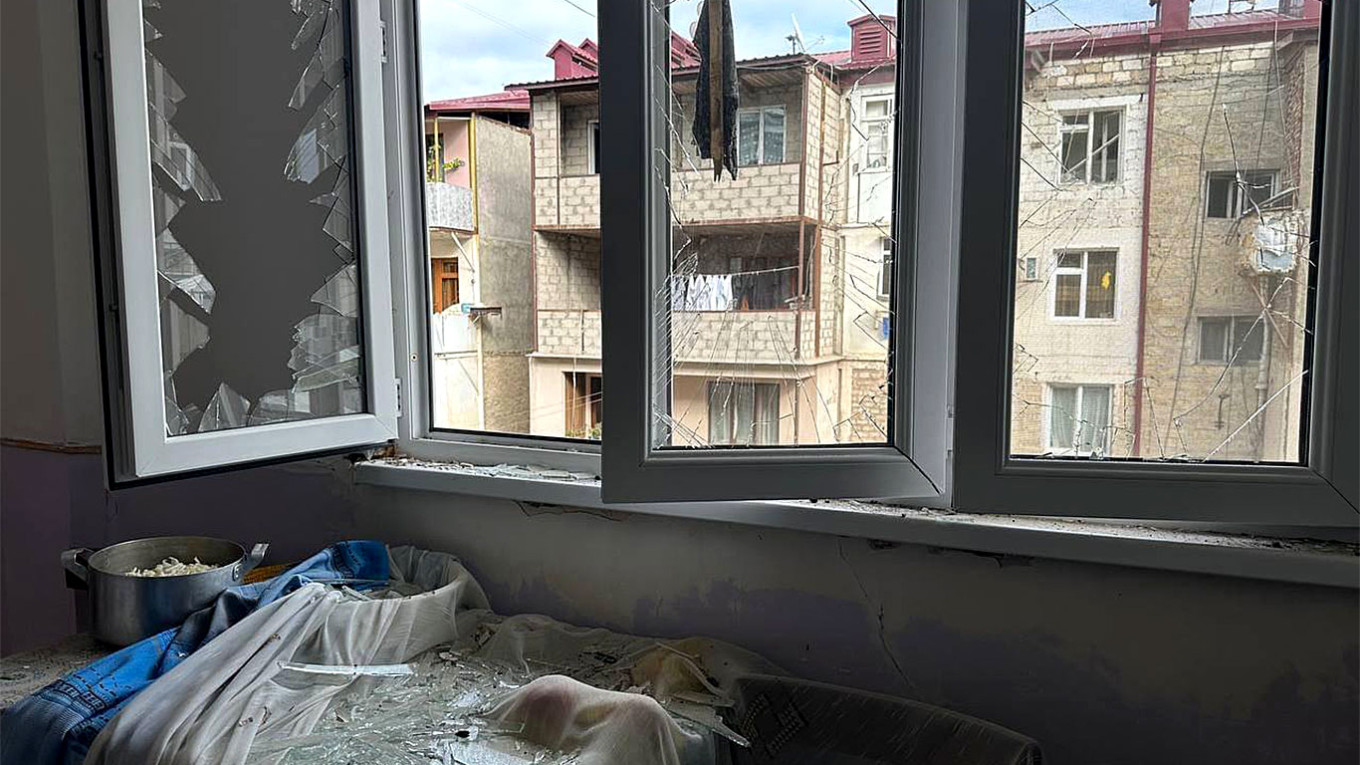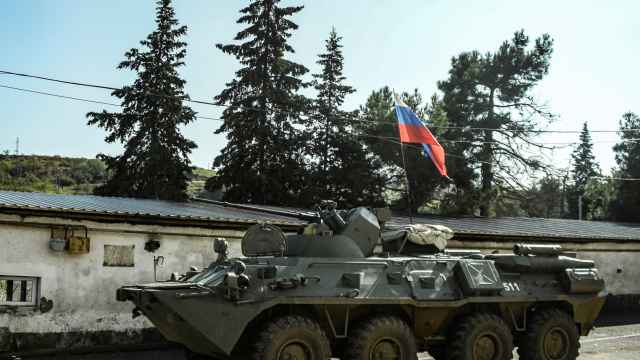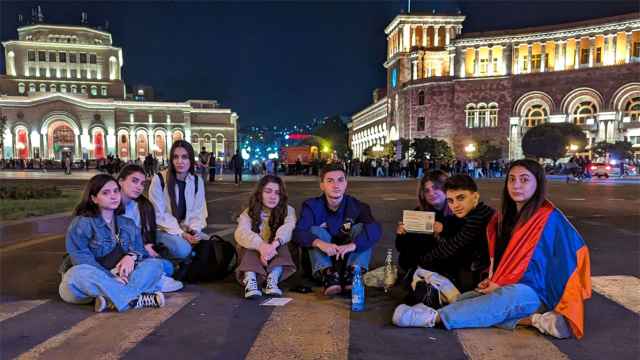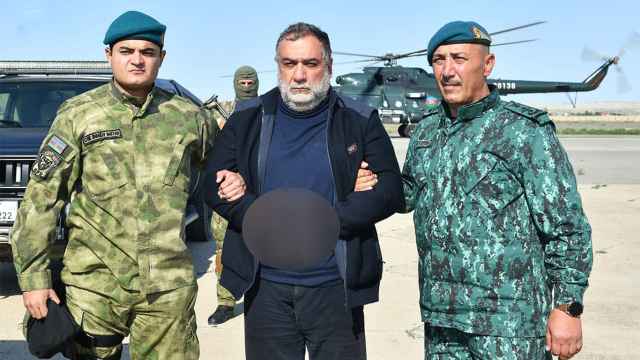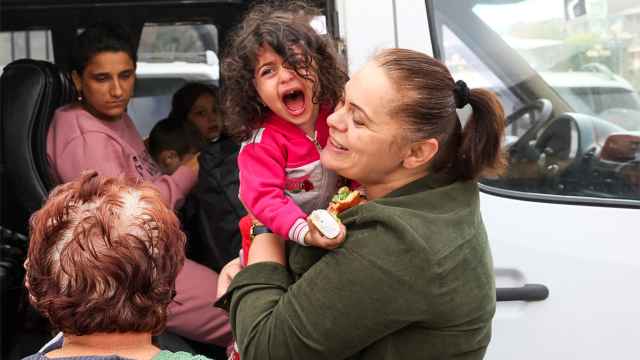Azerbaijan on Wednesday announced it had halted its military operation in the disputed territory of Nagorno-Karabakh after separatist Armenian forces agreed to lay down their arms and hold reintegration talks.
Baku and the ethnic-Armenian authorities in Karabakh said a ceasefire deal had been brokered by Russian peacekeepers to stop the fighting a day after Azerbaijan launched an "anti-terrorist operation."
The separatists said they had committed to a "full dismantlement" of their forces and the withdrawal of Armenian army units from the region, which has been at the center of two wars between Armenia and Azerbaijan since the collapse of the Soviet Union.
Azerbaijan's Defence Ministry said that "all weapons and heavy armaments are to be surrendered" under the supervision of Russia's 2,000-strong peacekeeping force on the ground.
Both sides said talks on reintegrating the breakaway territory into the rest of Azerbaijan would be held on Thursday in the city of Yevlakh.
The stunning collapse of separatist resistance represents a major victory for Azerbaijan's President Ilham Aliyev in his quest to bring Armenian-majority Nagorno-Karabakh back under Baku's control.
Armenian Prime Minister Nikol Pashinyan said in a televised address that fighting appeared to have largely subsided and insisted it was "very important" the ceasefire be held.
He denied that his country's army was in the enclave and said he expected Russia's peacekeepers to ensure Karabakh's ethnic-Armenian residents could stay "in their homes, on their land."
The latest flare-up comes three years after Azerbaijan recaptured swathes of territory in and around the region in a brief war that dealt a bitter defeat to Armenia.
Armenia said that at least 32 people had been killed and more than 200 wounded by the shelling in Karabakh, as the latest attack from Azerbaijan saw artillery, aircraft and drone strikes across the region.
Baku said Tuesday it had taken control of more than 60 military positions during "localized anti-terrorist measures."
Russian peacekeepers and separatist forces evacuated thousands of civilians from the fighting.
International pressure
The announcement of the ceasefire came after Azerbaijani President Ilham Aliyev warned that his country's military operation would continue until the separatists laid down their weapons, as well as amid mounting international pressure to end the fighting.
Russia, the UN and Pope Francis added to calls to stop the violence after the U.S. and France reached out to the leaders of both Azerbaijan and Armenia.
The fresh outbreak of fighting comes as Moscow, the traditional power broker in the region, is bogged down and distracted by its war against Ukraine.
But its peacekeepers on the ground appeared to have played a key role in helping to negotiate the ceasefire and will now oversee its implementation.
Russian President Vladimir Putin said he now hoped for a "peaceful" resolution in Karabakh, adding that Moscow has been in contact with all sides in the conflict.
Fears of a fresh war in the volatile South Caucasus region have grown in recent weeks, with Armenia accusing Azerbaijan of amassing troops in the disputed territory.
Azerbaijan has spent years building up its military forces as it harbored the goal of one day retaking the territory it lost to Armenian forces in the 1990s.
Turkey, a historic ally of predominantly Muslim Azerbaijan, called the latest military operation "justified" while urging "comprehensive negotiations."
A Message from The Moscow Times:
Dear readers,
We are facing unprecedented challenges. Russia's Prosecutor General's Office has designated The Moscow Times as an "undesirable" organization, criminalizing our work and putting our staff at risk of prosecution. This follows our earlier unjust labeling as a "foreign agent."
These actions are direct attempts to silence independent journalism in Russia. The authorities claim our work "discredits the decisions of the Russian leadership." We see things differently: we strive to provide accurate, unbiased reporting on Russia.
We, the journalists of The Moscow Times, refuse to be silenced. But to continue our work, we need your help.
Your support, no matter how small, makes a world of difference. If you can, please support us monthly starting from just $2. It's quick to set up, and every contribution makes a significant impact.
By supporting The Moscow Times, you're defending open, independent journalism in the face of repression. Thank you for standing with us.
Remind me later.


